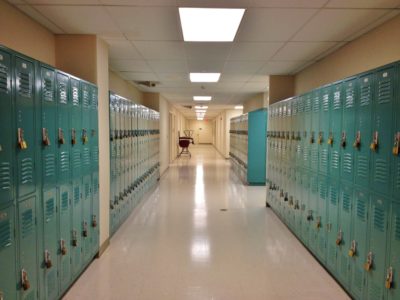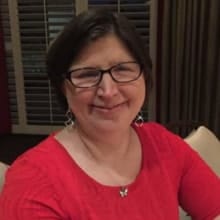
As other parents and families reminisce about the start of the pandemic and how their life has changed, I’m struck with a very different memory of early spring 2020 in my household. One year ago, just before the COVID-19 pandemic hit, my son began home hospital. Also known as homebound instruction, this is a tutoring program my son was placed in due to his inability to attend school safely. It quickly turned into something unexpected with the pandemic surging around us. The memory of the pain and uncertainty of this time still resonates with me today.
As a parent of a child on the autism spectrum, I have seen both the best and the worst our public schools have to offer. I’ve never wavered in my commitment to supporting our public schools, but I’ve often questioned my son’s place in the system. I know all too well the calls home. The calls to come pick up my son from kindergarten because he’d melted down and wasn’t having a good day. By third grade, those phone calls turned into suspensions.
Long before I ever wrote an email or called my representatives about public school funding, I was sitting in school conference rooms advocating for my own child’s education. I was fighting for acceptance and accommodations. These fights shouldn’t be necessary, but I know they happened all across our state — and they wear you down. It’s hard to attend a PTA meeting with the principal who just suspended your child, or hear a school board member pontificate on how wonderful the school system is at meeting after meeting while they place your child in a segregated classroom due to a lack of resources in general education.
Meanwhile, the revolving door of professionals continued to churn. By the time my son graduates fifth grade, he will have been a student at three different schools. That means multiple special education teachers, occupational therapists, and speech therapists — and rarely did his school team remain unchanged throughout the year. I once looked around my son’s school and realized there wasn’t one person there on a daily basis that he could trust. No wonder stepping through that school threshold felt so lonely to my child.
When the county decided to put my child on home hospital, I was panicked. Home hospital sounded scary and awful. My child no longer wanted to go to school, and his reaction to learning looked more like trauma than anything else. I worried about how far he was behind his peers. I worried about his ability to ever get back to his normal self. Then came a global pandemic.
As many now begin to talk about getting “back to normal,” I know that when it comes to our public schools, normal isn’t a good thing. Normal is lack of resources for children with the greatest need. Normal is school buildings in need of repair, and some staff members not earning a living wage. Getting back to normal and not addressing all that has happened in the last year isn’t a good idea either. We’ve lost family members, we’ve dealt with mental health struggles, we’ve lost teachers.
Just because our students are getting back to face-to-face learning doesn’t mean that they will suddenly be successful. There is no magic fairy dust that falls from the threshold of our school buildings. It will take investment from our state leaders to ensure that our children get the resources they need. We can’t buy supplies from the Dollar Store and wonder why they don’t last, and we can’t short our schools and wonder why they underperform.
Before the pandemic, our schools were ruled unconstitutional in court of law for not providing a sound, basic education. My son’s struggles as a special education student are just one small example of that. We can’t go back to normal. We must invest in our schools so that every child receives a sound, basic education, and we must continue to work until that education goes beyond the lowest bar. In fact, I hope we never get back to normal.
Recommended reading


